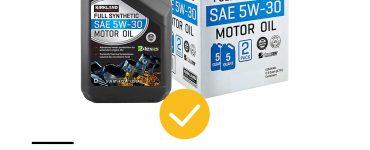Honda provides six distinct motorcycle-specific formulations of Pro Honda Oils for motorbikes, ATVs, scooters, and MUVs. All Pro Honda Oils are made to adhere to the stringent Honda service standards set by R & D. The way a Honda is utilized and how it is used influence the selection of the proper Pro Honda Oil for your bike.
Pro Honda Oils are available in six different motorcycle-specific formulations for Honda motorcycles, ATVs, scooters, and MUVs. All Pro Honda Oils are produced to Honda’s strict service requirements laid down by R & D. The manner in which a Honda is used and the conditions under which it is ridden are the most significant elements when selecting the proper Pro Honda Oil for your automobile.
Honda’s high-performance engine oil for the Honda CBR1000RR, MotoGP, and Superbike racing motorcycles. It features a unique combination of costly shear-stable polymer additives with top-tier base stocks developed by Honda R&D to resist viscosity and thermal breakdown in motorcycle engines.
In this article we are reviewing Honda GN4 Oil and its equivalent.

What does GN4 mean oil?

Pro Honda GN4
4-cylinder engine for use in all-around 4-stroke oil motorcycle for daily usage. GN4 is a petroleum-based motorbike 4-stroke oil that’s meant for scooters, ATV s and motorcycles used for light duty and low heat applications. Commuting, regular street riding, day trips, and basic trail excursions do not produce as much heat within the engine, therefore a less expensive additive package may be used. TOur latest engine oil is designed specifically for motorcycles. It includes an additive package to address the shifting demands of shared engine and transmission sump designs, as well as a high-performance technology that improves wear protection while maintaining optimum thermal stability. The PON-L4 is a high-performance, liquid full synthetic motor oil designed for use in all-terrain vehicles (ATVs) that sees maximum loads at temperatures ranging from -30°F to 150°F while operating. It’s available in 10W30, 10W40, 20W50, and 5w30 weights for cold weather ATV service.
But did you know that Honda set the standards for motorcycle oils when it unleashed the original GN4 back in 1975? If you have a light-duty Honda bike, then this motor oil gives you the best bang for the buck.
The Pro Honda GN4 is a mineral oil for 4-stroke scooters, ATVs, and motorcycles that is made from petroleum. If you want to go racing with your Honda, this isn’t the right oil for you. The Pro Honda HP4S is the correct option.
The Pro Honda GN4 is a special racing oil intended for motorcycles. The recipe incorporates a proprietary additive combination that exceeds the demands of motorbikes with a common engine and transmission sump.
The GN4 has a better shear resistance, more dependable viscosity, and a cleaner burn than its predecessors.
If you used synthetic oil on your motorcycle and are now switching to the Pro Honda GN4, you’ll notice right away that your motor runs more smoothly. It will be a lot quieter as well. This is true especially if your Honda recommends the GN4 in the service manual.
However, there are several superior oils for high-performance bicycles. However, if you’re a casual rider and your bike recommends a high-quality mineral-based oil, you have nothing to be embarrassed about with the Honda Pro GN4.
What does GN4 mean oil?
It’s a motor oil produced by Honda Motor Company. The GN4 was first created in 1975 and has since become a standard. Its superior shear resistance, viscosity stability, and purity are all well-known characteristics. Honda’s 4-Stroke GX140FAE Engine Oil, SAE 10W-40, helps to improve the time it takes for a motorcycle engine to reach maximum speed and deliver full power output. Motor racing was the inspiration for this innovative technology. This ensures that the engine performs at peak efficiency without jeopardizing its longevity.
It is only suitable for Honda four-stroke sports motorcycles with a dry clutch or an oil bath clutch.
Who manufactures Honda GN4 oil?
Honda GN4 oil is made by Pro Honda Oils and Chemicals, a division of American Honda Motor Co. Inc. Pro Honda specializes in oils and other machinery lubricants for motorcycles, ATVs and the like.
Honda GN4 10W30 Equivalent
Today, as a viscosity substitute for 10W-30, the 10W-30 viscosity has all but vanished except in specific diesel engines. A multi-grade oil is designed to combine the features of two distinct viscosity levels. The SAE 10W and 30 weight oils are used in this case.
A multi-grade oil is designed to combine the properties of two distinct viscosity grades. The SAE 10W and SAE 30 weight oils in this example.
The numbers preceding the ‘W’ stand for winter-grade viscosity of the oil. The lower this number is, the better your engine oil will function in cold temperatures. The numbers following the dash represent the viscosity of the oil at high temperature settings. The higher these digits are, the better they’ll survive a hot operational temperature.
Snow and ice are two different things. When it comes to cold-weather driving, both have their place. Under 0°C (32°F), 10W-30 motor oil acts like an SAE 10W weight oil, and an SAE 30 oil at 100°C (212°F). The important thing to know about 10W-30 oil is that it can endure temperatures as low as -13°F and as high as 86°F. At higher temperatures and pressures, 10W-30 oil becomes quite durable, allowing it to flow through crucial engine components without creating too much friction.
Most automobile manufacturers have switched to a 5W-30 viscosity in their vehicles, and 5W-30 or 0W-30 motor oil may be used in places where a 10W-30 grade is necessary.
Valvoline Advanced Full Synthetic SAE 5W-30 Motor Oil

Mobil 1 5W-30 Motor Oil

Valvoline High Mileage with MaxLife Technology SAE 10W-30 Synthetic Blend Motor Oil

Honda GN4 10W40 Equivalent
The viscosity, or weight, of the motor oil is measured in cSt. The Society of Automotive Engineers (SAE) defines a 10W-40 engine oil as having a viscosity grade of 10W at low temperature and 40 at higher temperatures.
When the temperature of motor oil drops, it thickens; when it gets hotter, it thins. Engine oil does not thicken as it warms up. When cold, 10W40 engine oil is similar to a 10W weight oil and behaves like a 40 weight oil when hot.
The 10W rating:
The 10W represents the oil’s cold viscosity. Oils have a maximum viscosity limit at a certain temperature. The lower the W number is (“W” stands for Winter), the thinner the oil will be. In this situation, a 10W rated oil will be thicker in winter than a 5W rated oil.
The 40 rating:
The 40 represents the oil’s viscosity at elevated temperatures. It looks at how well the oil flows when an engine is running at 100oC (212oF). The hot viscosity rating is concerned with seal leakage and whether or not the oil can protect engine components when it is in a thinner state. At engine operating temperature, a 10W-40 oil will be thicker than a 30W-30. Let’s look at where this motor oil is used. You won’t find 10W-40 on most modern automobile manufacturer’s recommendations lists.
It is still popular among light-duty gasoline engines in small cars, however it is also utilized in medium and heavy-duty diesel engines. It’s also used in smaller motorcycle engines. The 10W-40 oil viscosity has been a popular alternative for older engines with burning or oil leaking problems.
When the car engine is hot, the 10W-40 engine oil has a thicker viscosity than, for example, 10W-30 oil. This helps it to lubricate older moving parts in high-mileage engines while being less prone to seep. The thicker oil viscosity also ensures that it’s suitable for high-temperature engines since it will have better resistance to thermal breakdown.
If you want to use 10W-40 oil, synthetic 10W-40 might be a good alternative for smoother start-up protection. Synthetic motor oil flows more easily than mineral oil (mineral oil) and has the same viscosity as conventional motor oil (mineral oil) to protect piston skirts and bearings when the temperature rises.
Valvoline SynPower Full Synthetic Motor Oil, SAE 5W-40 MST

Amsoil DB40QT-EA 10W-40 Synthetic Dirt Bike Oil

Liqui Moly Premium 5W-40 Synthetic Motor Oil
 Liqui Moly Premium 5W-40 Synthetic Motor Oil">
Liqui Moly Premium 5W-40 Synthetic Motor Oil">
Pennzoil 0W-40 Synthetic Oil

What is the best motor oil for motorcycles?
One of the most essential oil changes to avoid engine failure and rapid wear is done correctly on a regular basis. The standard JASO was developed by Japanese individuals in order to immediately identify what sort is appropriate for motorcycles (Japan Automotive Standard Organization).
The letter “M” in the specification on JASO indicates that it is intended for four-stroke engines, and “A” or “A-2” – that it can be used with a “wet” clutch. Oil marked “MB” is not appropriate for operation in an oil bath because it is not suitable for use with a clutch. In contrast to “MA”, “MA-2” can be utilized in engines with ultra-high torque (for example, V-twin with a big working volume). Synthetic motor one is more suited to low temperatures and has less of an issue with overheating.
It might be tough to choose between them, since each has its own set of benefits and drawbacks. It’s hard to determine which one is best. The most well-known names include Motul Synthetic Motorcycle Oil, Shell Rotella, Honda 4 Stroke, Castrol Power, Amsoil, and so on. Spending lots of money at all times isn’t always the best option; low-cost oils can sometimes be just as effective as high-end ones.


